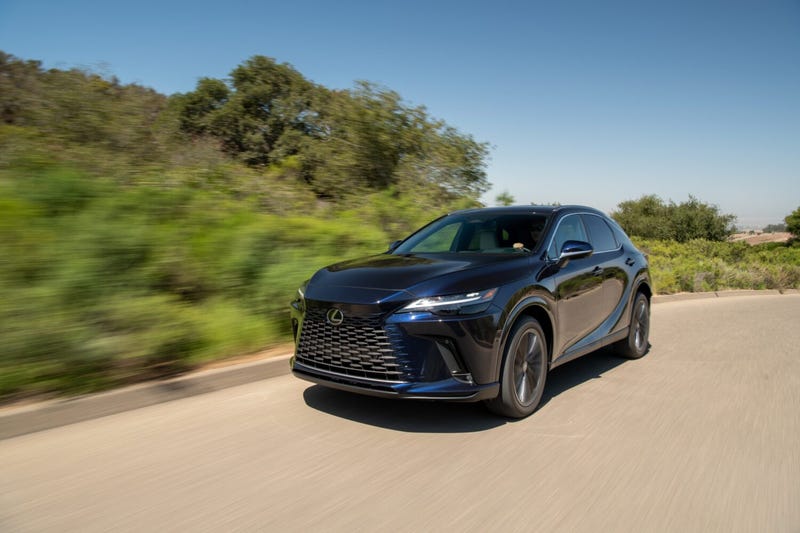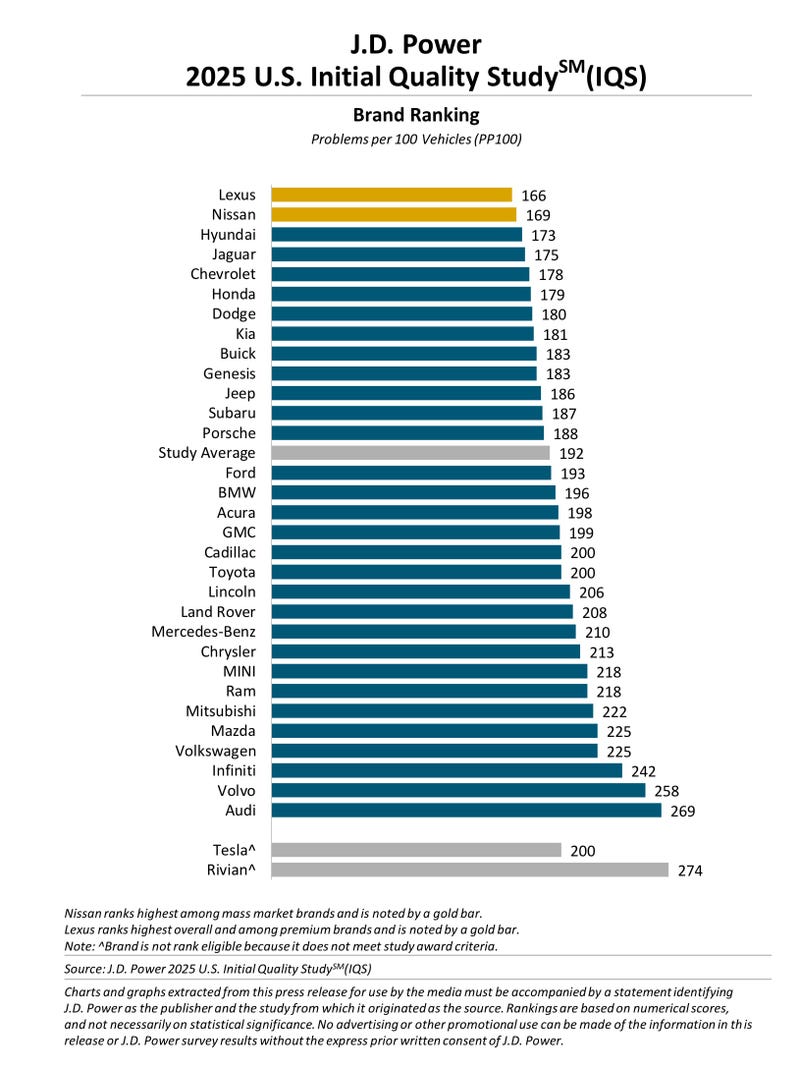
(WWJ) While the overall quality of vehicles is improving, car buyers are getting more irritated with car makers, as more controls are put onto touch screens. That’s the main takeaway from one of JD Power’s most closely watched surveys of the year, the Initial Quality Study.
“Simpler is better, especially for commonly used features,” says Frank Hanley, senior director of auto benchmarking at JD Power.
The U.S. Initial Quality Study, now in its 39th year, is based this year on responses from 92,694 purchasers and lessees of new 2025 model-year vehicles who were surveyed after 90 days of ownership. JD Power also incorporates repair visit data based on hundreds of thousands of real-world events reported to franchised new-vehicle dealers.
The study cited a slight improvement in overall quality, and even saw an improvement in infotainment quality. Hanley says that should be encouraging for consumers.
“The industry on average had two problems less per hundred vehicles this year. That brought the average down to 192 problems per 100 vehicles.”
However, when you break things down further, mass market brands did a little worse than last year, premium brands did better. Hanley says the improvement in premium brands may be a bit misleading.
“When we dug in to what was really causing that improvement on the premium side it was almost completely driven by improvements that Tesla has made to their vehicles this year.”
Lexus again finished first among all brands, followed by Jaguar and Genesis. But, Nissan jumped to the top spot among mass market brands ahead of Hyundai in the number two spot and Chevrolet third.
“Lexus returns to the number one spot this year,” says Hanley. “They improved by seven problems per 100 on their vehicles to take the top spot again. They moved all the way up from 8th in the ranking to number one.”
General Motors had the most model level awards. The Porsche 911 was the highest ranking model overall.
JD Power listed these as key findings of the 2025 study:
Premium vehicles have more defects than mass market counterparts: While design-related issues are equal between mass market and premium vehicles, defect/malfunction-related issues are more prevalent on premium vehicles. Exterior is the largest area of discrepancy, with premium vehicles averaging 4.2 more problems than mass market vehicles, mostly driven by those from non-traditional automakers.
Plug-in hybrid electric vehicles (PHEVs) have most problems: For the first time, PHEVs, on average, have more problems than their battery electric vehicle (BEV) counterparts (237 PP100 vs. 212 PP100, respectively). Gasoline (184 PP100) and hybrid (196 PP100) vehicles have fewer problems than PHEVs and BEVs. The improvement in BEVs is driven by a 62 PP100 improvement for Tesla.
Problematic launches and late model-year changeovers: New-model launches account for the highest number of problems (203 PP100) since the study was redesigned in 2020, compared with 190 PP100 for carryover models. Of the 18 new models launched this year, only two have fewer problems than their respective segment average. “Typically, problems for new launches are balanced with some being successful and others having issues,” Hanley said. “This year, however, new launches are notably more problematic.” The good news for the new launches is that they require fewer repair visits than the carryover models.
Shifting consumer preferences increase cupholder frustration: While it seemed like manufacturers had cupholders figured out, given that owners are now bringing more reusable containers into their vehicles, manufacturers are struggling to keep up with being able to accommodate all the different shapes and sizes that are increasingly available. Consequently, owners are again citing more problems in this area, with the expectation that their vehicle should be able to hold different sizes of containers.
As for auto plants, BMW AG’s Graz (Magna Steyr-BMW), Austria, plant, which manufactures the BMW Z4, receives the Platinum Plant Quality Award. Plant quality awards are based solely on defects and malfunctions and exclude design-related problems and repair incidents.
Gold Plant Quality Awards for North/South America, in a tie, go to Toyota Motor Corporation’s Cambridge South plant in Ontario, Canada, which produces the Lexus RX, and Toyota Motor Corporation’s Georgetown 3, Kentucky, plant, which produces the Lexus ES. The Gold Plant Quality Award for Asia Pacific goes to Toyota Motor Corporation’s Tahara Lexus, Japan, plant, which produces the Lexus IS, Lexus LS and Lexus NX.
Hanley says quality is more important than ever for car makers and car buyers.
“Obviously cars are more expensive than they’ve ever been. So if you are going to go out and bite the bullet and buy a new vehicle, you definitely want to do your research.”

